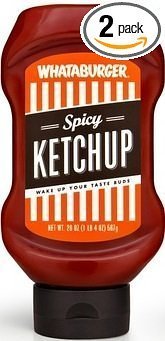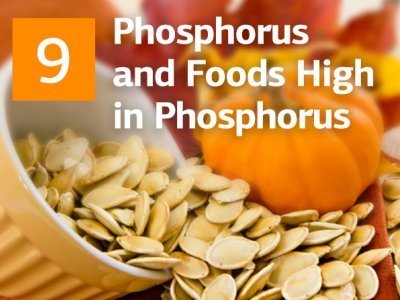Product pictures
| Amount Per 1 tbsp | |||
| Calories | 20 Kcal (84 kJ) | ||
| Calories from fat | 0 Kcal | ||
| % Daily Value* | |||
| Total Fat | 0g | 0% | |
|---|---|---|---|
| Sodium | 240mg | 10% | |
| Total Carbs | 4g | 1% | |
| Sugars | 4g | 16% | |
* Percent Daily Values are based on a 2000 calorie diet. Your daily values may be higher or lower depending on your calorie needs.
Find out how many calories should you eat.
Ingredients And Nutrition Overview
Best
choice Good
choice Poor
choice Avoid
it!
choice Good
choice Poor
choice Avoid
it!
-
WeightWatchers Points: 0.4, PointsPlus: 0, SmartPoints: 1
WeightWatchers Points are estimated by carbohydrates, fats, protein and fiber in product. They are not an affirmation of better quality or nutritional value of the product or its manufacturer. Only way to count for dieters. Less points are better.
Read more at Weight watchers diet review -
For dieters: FoodPoints value is 0
* FoodPoints are calculated by Fooducate based on fats, carbs, fiber, and protein. They are not an endorsement or approval of the product or its manufacturer. The fewer points - the better.
-
Highly Processed!
This product is highly processed. If you'll take a look at its ingredient list, you'll discover new words to add to your vocabulary. Many of theses ingredients are required to increase the shelf life of the product and improve the flavor that disappears when food is not fresh.
-
Contains high fructose corn syrup
High fructose corn syrup (HFCS) is a highly processed ingredient manufactured from surplus corn, and yielding a cheap replacement to table sugar. In the early 1980’s many food manufacturers started using it instead of sugar as a cost cutting measure. That’s about the same time obesity rates started to skyrocket in the US. Most scientists agree that HFCS is no better and no worse than plain sugar, though some newer studies seem to find the two affect the metabolism differently. Consumption of both should be drastically limited. ---- Sources: Bray GA, Nielsen SJ, Popkin BM. Consumption of high-fructose corn syrup in beverages may play a role in the epidemic of obesity. Am J Clin Nutr. 2004;79(4):537-43. Berkey CS, Rockett HR, Field AE, Gillman MW, Colditz GA. Sugar-added beverages and adolescent weight change. Obes Res. 2004;12(5):778-88. Johnson RJ, Segal MS, Sautin Y, Nakagawa T, Feig DI, Kang DH, Gersch MS, Benner S, Sánchez-Lozada LG. Potential role of sugar (fructose) in the epidemic of hypertension, obesity and the metabolic syndrome, diabetes, kidney disease, and cardiovascular disease. Am J Clin Nutr. 2007;86(4):899-906. Schulze MB, Manson JE, Ludwig DS, Colditz GA, Stampfer MJ, Willett WC, Hu FB. Sugar-sweetened beverages, weight gain, and incidence of type 2 diabetes in young and middle-aged women. JAMA. 2004;292(8):927-34. Ludwig DS, Peterson KE, Gortmaker SL. Relation between consumption of sugar-sweetened drinks and childhood obesity: a prospective, observational analysis. Lancet. 2001;357(9255):505-8. James J, Thomas P, Cavan D, Kerr D. Preventing childhood obesity by reducing consumption of carbonated drinks: cluster randomised controlled trial. BMJ. 2004;328(7450):1237.
-
One of the worst products in its category
This product is in the bottom 10% of the products in its category
-
Natural flavors added. Learn why
Companies add flavorings to make products taste better. They are created in a lab and the formulations are guarded as trade secrets. Flavorings can compensate for flavor loss during processing, substitute for ingredients, lower production costs and increase shelf stability. Natural flavorings are more expensive to source than artificial flavors, but tend to be better received by consumers. People sensitive to MSG, vegans, vegetarians and those with allergies should pay special attention to the phrase "natural flavorings" since glutamates, animal products or allergens may be the source of natural flavors. You can always contact the manufacturer for more information.
-
But it's ketchup, why the low grade?
Ketchup = sugar + vinegar + tomatoes + salt. In fact, the sugar content is about 25% by weight! The good: tomatoes contain vitamins and minerals, especially lycopenes. The bad: ketchup is packed with sugar and salt. Some healthier alternatives include salsa or homemade tomato sauce. Try sauteing onions, adding fresh tomatoes, bell peppers, garlic and some fresh herbs and spices for a homemade tomato sauce. Or try vinegar in place of ketchup - cider vinegar makes a tasty replacement for ketchup.
-
Learn more about ketchup
Learn more about ketchup.
You Might Also Like
% RDI of Main Nutrition Facts
1%
of RDI* (20 calories) 15 g
-
Cal: 1 %
-
Fat: 0 %
-
Carb: 1.3 %
-
Prot: 0 %
-
0%25%75%RDI norm*
Calories Breakdown
- Carbs (100%)
Get Your Recipe of Health!
Follow RecipeOfHealth on Facebook!















Add your comment